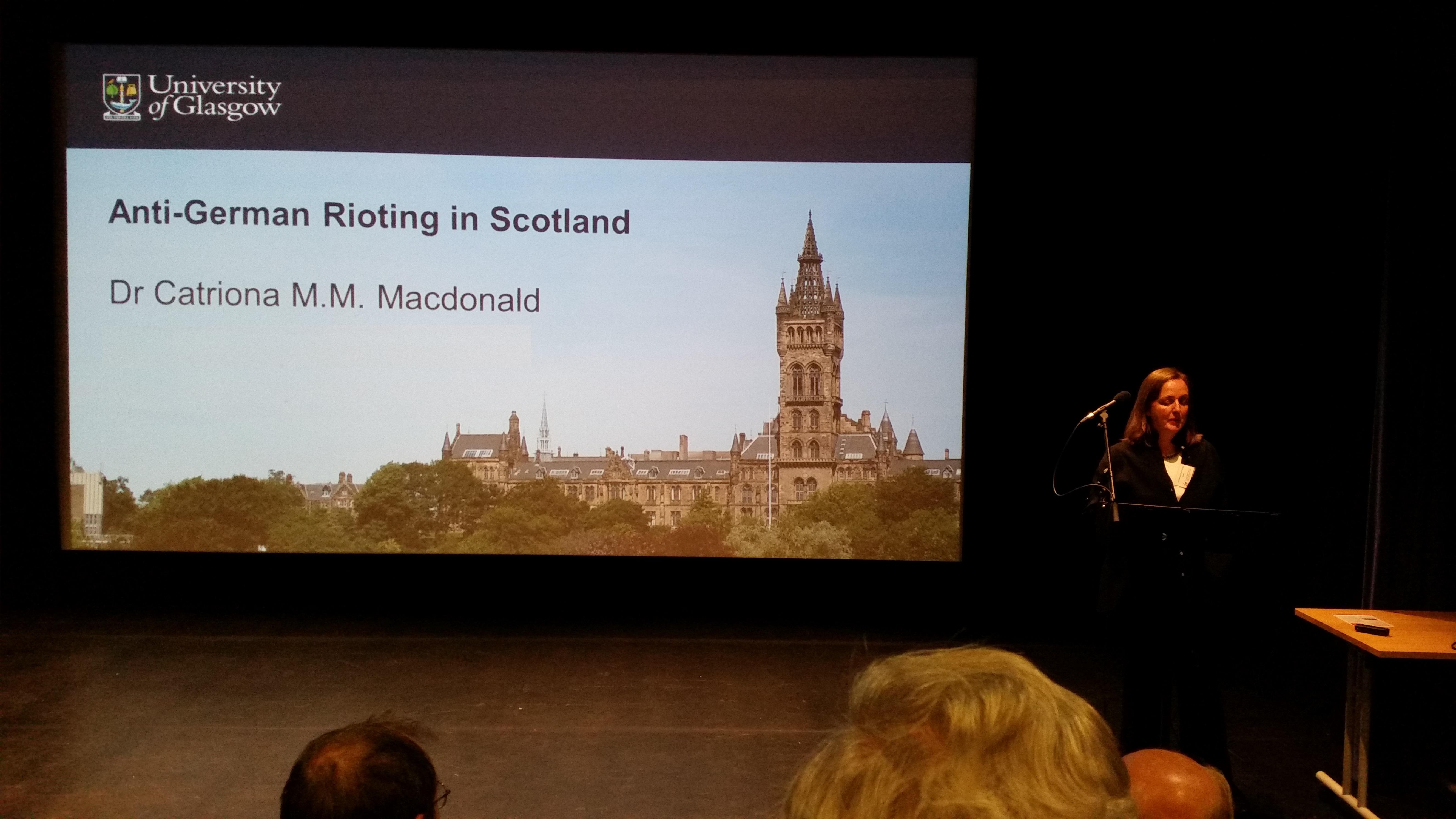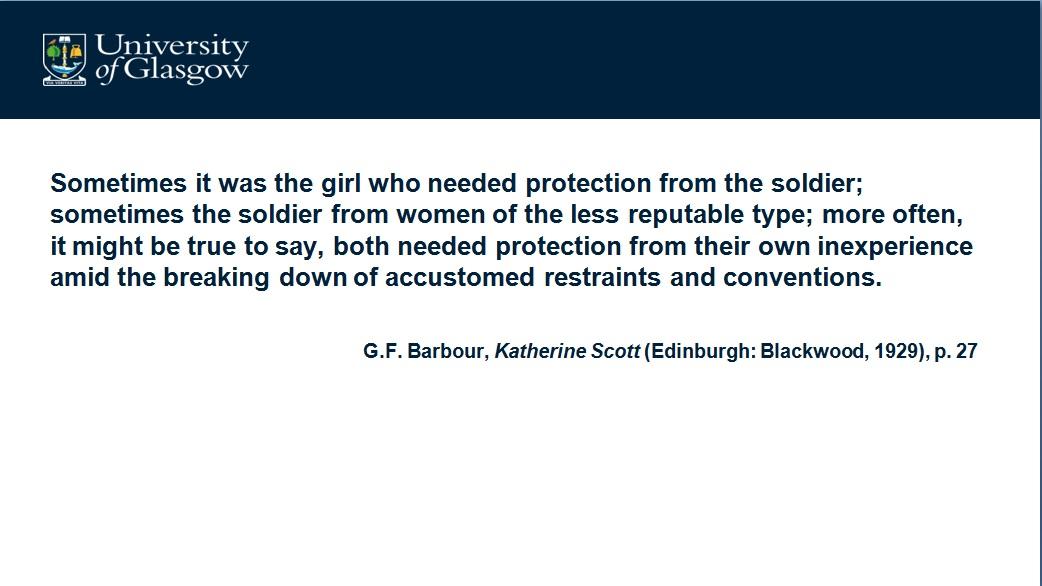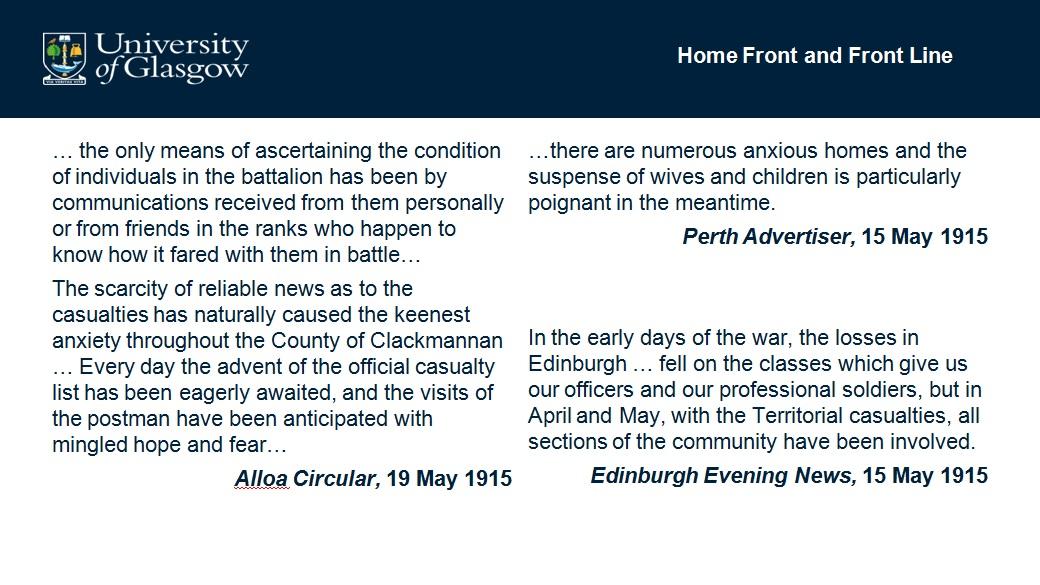
Dr Catriona Macdonald
Anti-German riots in Scotland during World War I by Dr Catriona M. M. Macdonald
Dr Macdonald is a Reader in Late Modern Scottish History and has written about Scotland during the First World War.
The talk focused on the anti-German riots that took place in May 1915 in pockets of Scotland. Alloa, Annan, Dumfries, Greenock, Leith and Perth witnessed significant troubles. Why were there no riots in Hawick when there was a major camp on its doorstep? Dr Macdonaldl argued that perhaps some areas of Scotland were less troubled by Germans and more concerned about the impact of training camps.
At Stobs women were used to patrol the perimeter, to protect both woman and the soldiers!

In 1911 Germans made up 5% of the immigrant population in Scotland and only small numbers remained at liberty. By 1914 there were 617 Germans in Glasgow and Dr Macdonald questioned why there were no riots there. In comparison, there were troubles in Perth and Alloa who had few Germans; 14 and 4 respectively.
London newspapers did not make it into Scotland at this time so an important factor in disseminating information and stirring up passions fell to the liberal Scottish press.
 For further information on Dr Macdonald’s talk please read the essay ‘May 1915: race, riot and representations of war’ in Macdonald and McFarland (eds), Scotland and the Great War (Edinburgh: John Donald, 1999), pp.145-171.
For further information on Dr Macdonald’s talk please read the essay ‘May 1915: race, riot and representations of war’ in Macdonald and McFarland (eds), Scotland and the Great War (Edinburgh: John Donald, 1999), pp.145-171.
Dr Macdonald issued a warning about interpreting reports of rioting in Scotland “The factors I’ve highlighted today are not supposed to excuse explicit racist attacks or to hide obvious anti-German sentiments under layers of circumstantial evidence so that Scots can feel a little better about themselves. What is important to note, I think, is that we ought to be sceptical of grand narratives and general rules that purport to explain local events by pointing to metropolitan visions of racial prejudice and fail to take account of the fact that while a single state declared war, four nations fought it and made sense of it in different ways, many of which were contradictory.”
The Stobs Camp Project would like to express its gratitude to Dr Macdonald for permitting the use of her slides and providing the conclusion.
